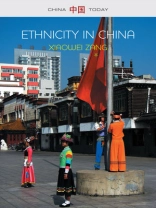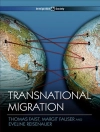On the global stage, China is often seen to be a homogenous
nation when, in fact, it is a diverse multi-ethnic society, with 55
minority nationality groups recognized by the government. Scattered
across the vast landmass, ethnic minorities in China occupy a
precarious place in the state, where the Confucian concept of
cultural community plays down ethnicity and encourages integration
of minority nationalities into the majority Han-Chinese
society.
This insightful book reveals the ethnic diversity underlying the
People’s Republic of China and examines how ethnicity
intersects with social and political issues through key themes such
as ethnic inequality, the preservation and contribution of the rich
traditions and customs of minority cultures, and the autonomy of
regions such as Tibet and Xinjiang. The author investigates the
important role of the state and Beijing’s assimilation stance
to show how its nationality policy, driven by Confucian
assimilation ideology, has dictated China’s own minority
rights regime and influenced its foreign policy towards
international minority rights.
This book by a distinguished scholar of ethnicity in China will
be essential reading for students and scholars of race and ethnic
relations, nationalism and Chinese culture and society.
Spis treści
Map
Chronology
Preface Acknowledgements
List of Acronyms
1. The People’s Republic of China as a Multi-National
Country
2. Ethnic Inequality
3. Minority Cultures
4. Regional Autonomy
5. Intra- and Inter-Group Differences
6. Tibet and Xinjiang
7. China’s Nationality Policy and International Minority
Rights
Bibliography
O autorze
Xiaowei Zang is Chair Professor of Social Sciences at the City University of Hong Kong












